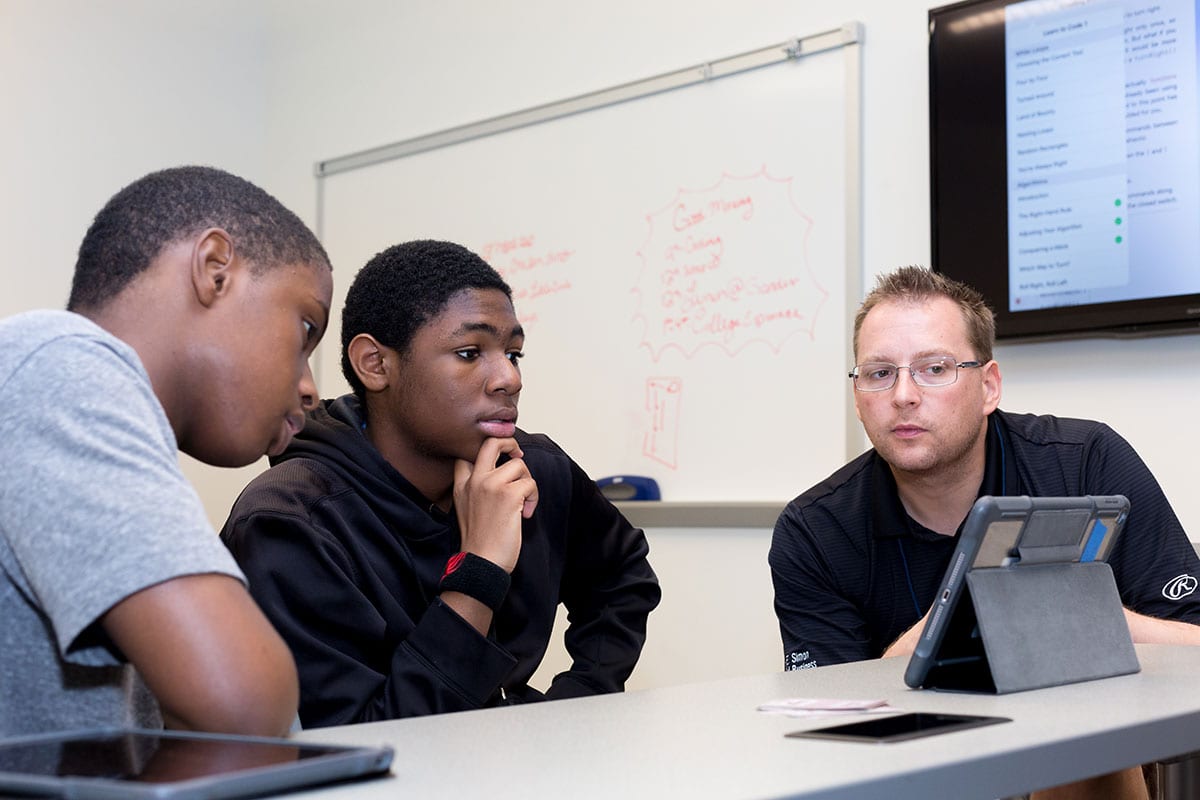Paul Gross, assistant professor of software development, is laser-focused on educating future software developers to meet workforce demand.
Paul Gross, assistant professor of software development, says he works on the practical side of computer science.
“It’s the side where it’s more important to know how to build software than it is to do research,” he says. “We have a massive shortage of people who can work on that practical side, people who have different areas of expertise. We need graduates who have studied chemistry or psychology, who can take that specific knowledge and develop software.”
Gross arrived at Maryville in 2017, and since then he has focused on educating future software developers. He designed the new master’s in software development and is developing the individual courses along with Mike Palmer, instructor of information systems. He has also revamped existing computer programming courses and created new classes in collaboration with colleagues across campus.
He worked with Palmer and Stacy Hollins, PhD, associate professor of information systems, to redevelop the three, eight-week app development academic minor courses so that any student, regardless of major, can learn to build apps for the iPad and iPhone. Students in the minor learn by creating apps for non-profit partners. For example, students developed apps to support a social inclusion research project and to help market the Musial Awards.
Partnering with Tom Spudich, PhD, associate professor of chemistry and forensic science, and Maryville athletics coaches, Gross developed a sports analytics course involving Maryville’s Cyber Fusion Center. Students work directly with coaches to identify questions about team strategy and performance that students can investigate with data. To date, the Saints baseball, softball, volleyball and bowling teams have benefited from the research.
Off campus, Gross addresses the imperative for increased STEM education at high school and elementary school levels.
Gross partners with Steve Coxon, PhD, associate professor of education, and Rebecca Dohrman, PhD, associate professor of communication, to design activities to help students in Jennings and Ritenour school districts become more “cyber ready.” Their grant from the Monsanto Foundation focuses on preparing students to succeed in high school computer science and cyber security courses by introducing fundamental computer administration concepts.
In a second collaboration with Coxon, Gross helps create STEM programs for Boys & Girls Clubs of Greater St. Louis. Funded by Boeing, the Code Creators program adds robotics, app development and web development after-school activities to their offerings.
